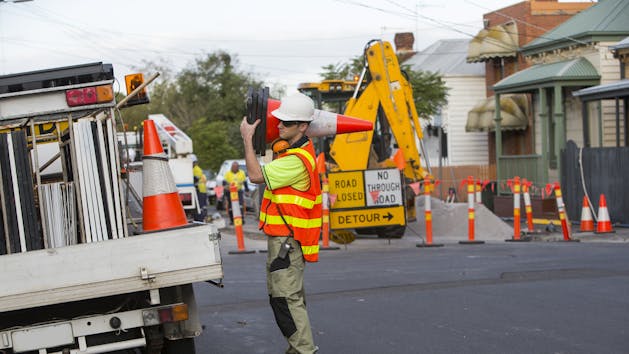Find the right solution for your business with our free Fleet Management Buyer’s Guide.
How Much Fuel Are You Losing to Thieves?
There’s no question that fuel is a big expense for every fleet. On average it accounts for around 30% of total expenses, with many sizable fleets spending millions of dollars every week on fuel.
That's why fuel theft and unauthorized fuel purchases could be hurting your business more than you realize. You invest a lot of trust in your drivers, but unfortunately some of them may not reward that trust with responsible behavior. As a fleet manager it's important to have backup systems in place to make sure your fleet is not paying more than it has to for one of its major operating expenses — fuel.
Of course there are a range of measures you can take to minimize fuel use but unscrupulous employees may take extra precautions to avoid detection. Verizon Connect is a pioneer in using GPS tracking technology to help you stay one step ahead and boost the profitability of your fleet.
Verizon Connect Fleet™ was the first fleet management software program to introduce a comprehensive Fuel Card Reconciliation report as part of its Fuel Card module. This report makes it incredibly easy to identify fraudulent fuel card use. No more late-night detective work or hours spent poring through pages and pages of paperwork. By using Verizon Connect Fleet to monitor fuel use, you can:
- Increase profits by cutting back on unauthorized fuel purchases
- Encourage responsible fuel card use
- Identify areas for staff training or coaching
- Improve profitability of fleet by enforcing good driver behavior
How does the solution catch fuel thieves?
Essentially the Fuel Card Reconciliation report compares fuel card use to the actual location of the vehicle. If a card is used without an approved vehicle within a set range, that information is highlighted for the fleet manager to investigate.
So how exactly does it work?
The solution works by associating each fuel card to a specific company vehicle. The fuel card is kept with the vehicle, available for use by any driver that needs to use it. It's logical to expect that whenever that particular card is used the company vehicle should be at the same location. If it isn't, then the transaction gets red-flagged for investigating, since that discrepancy may indicate unauthorized fuel card use.
Using the latitude and longitude data supplied by the GPS-tracked vehicle and the fuel card transaction terminal, the report will check to make sure it's a match for the transaction time. Obviously this is within reason, since the pump may be located a hundred meters or more from the actual payment booth.
Imagine that Sam, one of your drivers, takes a work van home for the weekend. He knows the company policy prohibits the use of work vehicles for personal use, and GPS tracking monitors any after-hours use. However, he's going fishing with his buddy, Dave, whose SUV is running low on gas. He grabs the fuel card from the work van and uses it to fill up Dave's truck. When Harry, Sam's boss, runs the Fuel Card Reconciliation report on Monday morning, Sam's purchase will be red-flagged for inspection because the card was used without the work vehicle in close proximity.
What do I do if a fuel purchase gets red-flagged?
The key to using the report successfully is proceeding cautiously when a transaction gets red-flagged. There could be a number of reasons why it has been highlighted.
- The fuel card may be associated with the wrong vehicle — Check that the right card is being used with the right vehicle, and make sure it's entered against the vehicle details. In most cases the fuel card company will provide a fuel purchase matched against a vehicle name. As long as the vehicle name and fuel card established in Verizon Connect Fleet are the same, the report will be correct.
- The fuel may have been paid for at a later date, or even prepaid before the vehicle was actually refilled.
- An unauthorized fuel purchase may have been made.
If there appears to be no legitimate explanation for the flagged transaction, a quick check with the driver may uncover the reason for it. If you have reason to suspect it may be a disciplinary matter, you might want to have your human resources team involved from the start.
Whatever the case, the report is not a club to beat drivers, but an effective way for managers to be alerted to areas that need attention to maintain a profitable fleet. If you're having any difficulty implementing a GPS tracking solution, we recommend you read this article on introducing fleet management software to your staff.
Find out how our platform gives you the visibility you need to get more done.




